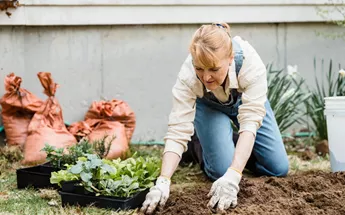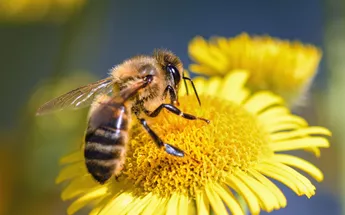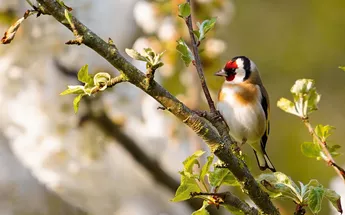What is Earth Day?
Earth Day is celebrated each year on April 22nd to raise awareness and appreciation for our planet's natural environment. The first Earth Day was held in 1970, and it has since become a global movement with over 190 countries participating in various events and initiatives.
Earth Day's aim is to highlight the environmental challenges facing our planet and to encourage individuals, communities, and governments to take action to protect the Earth's natural resources. The day serves as a reminder of the importance of preserving our planet for future generations and the need to address issues such as climate change, pollution, deforestation, and loss of biodiversity.
One of the key messages of the day is the importance of individual actions in protecting the environment. Small changes such as reducing plastic use, conserving water, and recycling can make a significant impact when practised collectively. Earth Day helps to provide an opportunity for individuals and organisations to come together and make a concerted effort towards creating a more sustainable future.
The theme varies from year to year, with each year highlighting a different aspect of environmental protection. This year's theme is "Invest in our planet".
What can I do to help the environment?
Making small changes in your daily routine can help to reduce your impact on the environment and help contribute to a healthier planet.
Here's some examples you could try:
- Reduce, reuse and recycle: Reduce your consumption of single-use products, such as plastic bags and bottles, and recycle as much as possible.
- Conserve water: Turn off the tap when brushing your teeth, fix any leaks and install water-saving devices like low-flow showerheads or taps.
- Switch to energy efficient appliances: By using energy efficient light bulbs, appliances and electronic devices, you can help to reduce your energy consumption.
- Reduce your carbon footprint: If you're only going on a short journey, consider walking or cycling, or using public transport instead of driving.
Growing our own vegetables and plants at Abbeyfield

At Cunningham House in North Weald, our residents have been getting involved in the gardening; planting a herb garden, potatoes, onions and runner beans that they will use in meals prepared at the home.

Moretons in Ferndown have been busy planting seedlings, as part of a new project with Eco in Mind and working in collaboration with Growing Compassionate Communities, Ferndown Dementia Friendly Town and Dorset Mind to grow plants and food for the local allotment.
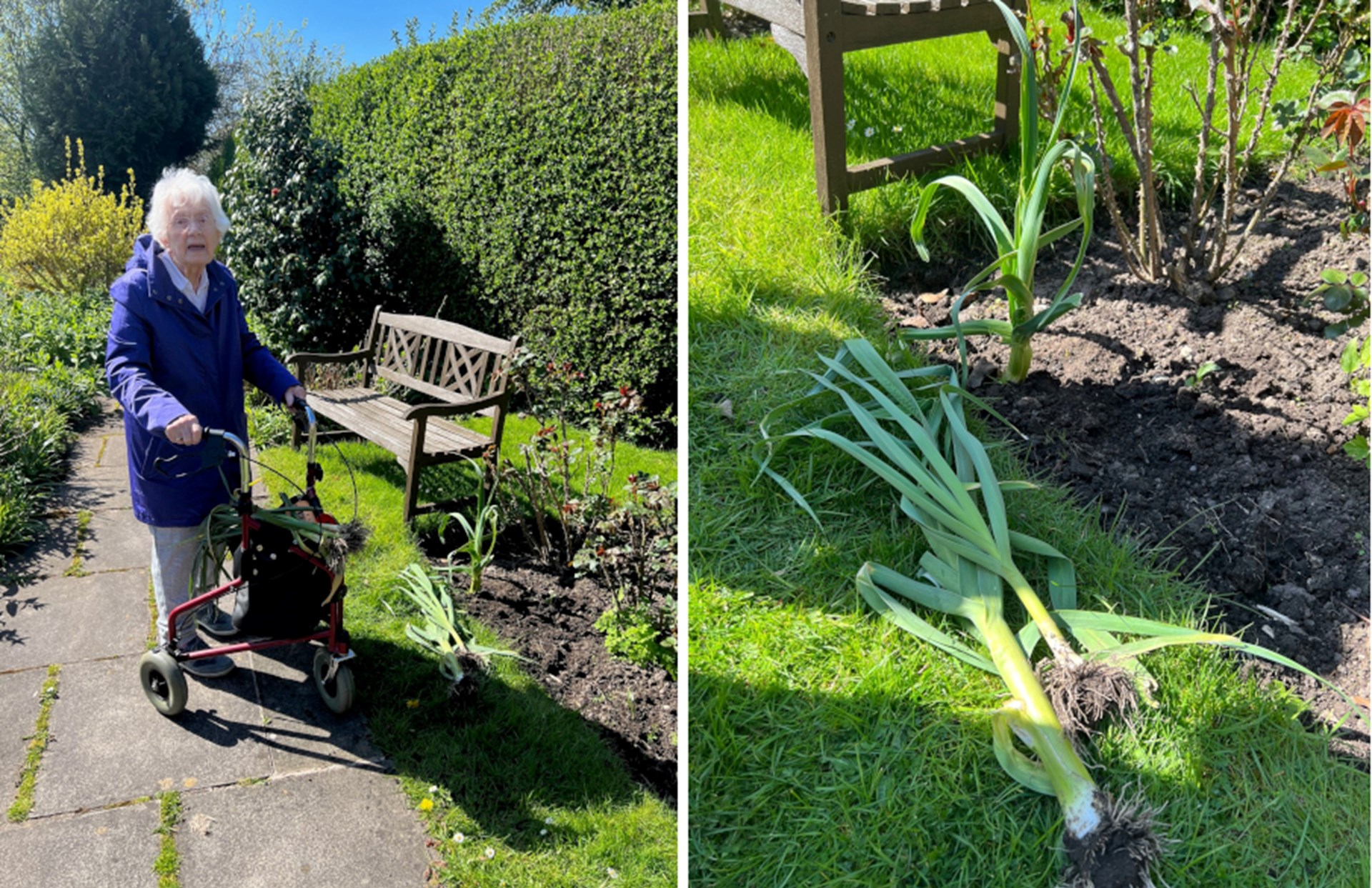
Residents at Abbeyfield House Bramhall have been getting stuck in picking these gorgeous leeks ready to make into a delicious cheesy leek sauce at the house.
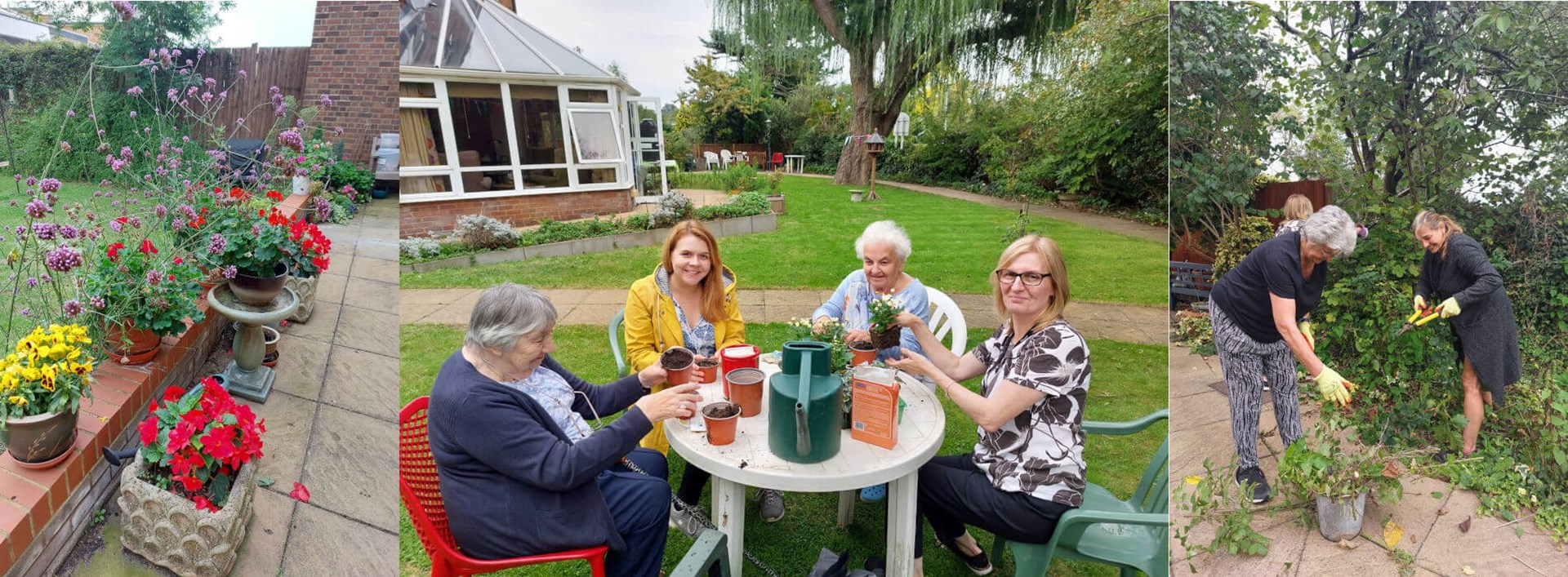
Last year, residents, staff and visitors came together at Donaldson Lodge in Potters Bar for an environmental day to help maintain and reinvigorate the garden.
The benefits of growing your own vegetables
Growing your own vegetables has a number of benefits including:
- Creating fresh produce: You can harvest your vegetables at the peak of their ripeness, which will mean you get the best taste and the most nutritional value.
- Health benefits: Home-grown vegetables are often healthier than vegetables you buy in your local supermarket as you can control what fertilisers and pesticides you use.
- Saving money: Growing your own vegetables often saves money and can help reduce waste, as you can just pick the vegetables that you need.
- Environmental benefits: By growing your own vegetables, you reduce your carbon footprint as you cut out the need for transportation and packaging.
- Stress relief: Gardening provides you with the chance to connect to the outdoors, get out in the fresh air and can be very therapeutic.
- Community building: Gardening is a great activity to do as a group allowing you to socialise and create new friendships.
Looking for more inspiration?
We have a collection of guides and blogs with information on how to begin gardening, upcycling your garden furniture and how to encourage wildlife and bees into your garden.
How to upcycle your garden furniture
It is nice to spend time in the garden in your favourite sunchair, but outdoor furniture can sometimes look a little worse for wear! Here we have some ideas for making your furniture look new again.
A beginners guide to gardening
Whether you have a small balcony or a large space, gardening can be a relaxing and rewarding hobby. It is the perfect way to connect with nature and truly reap what you sow.
How to encourage bees into your garden
Bees play a vital role in pollinating plants, helping them to produce fruits, vegetables, and seeds. Without bees, our gardens and crops would struggle to survive, so it's important to encourage them into our gardens whenever possible.
A guide to encouraging wildlife in your garden
No matter how big or how small your garden is, you can do your bit to encourage and help the wildlife around you.

